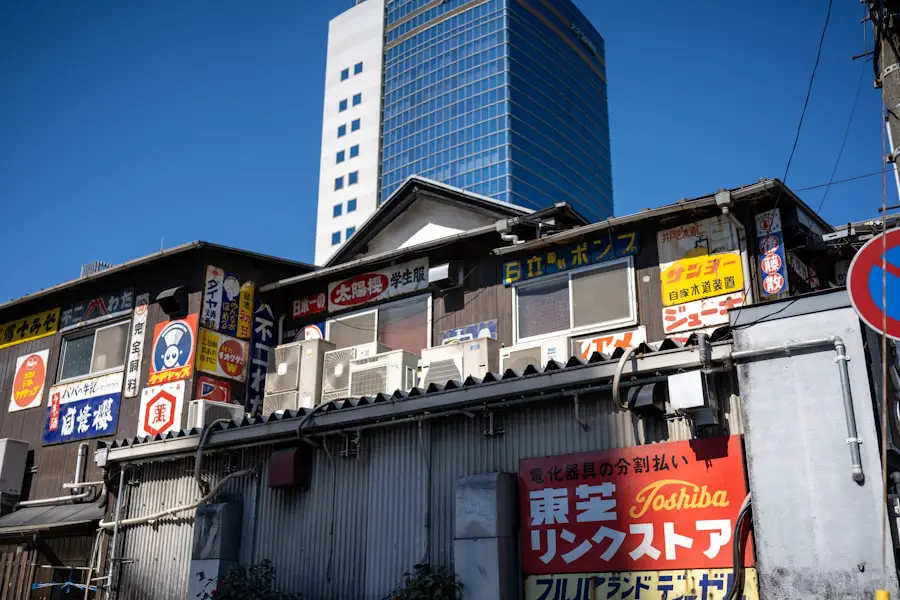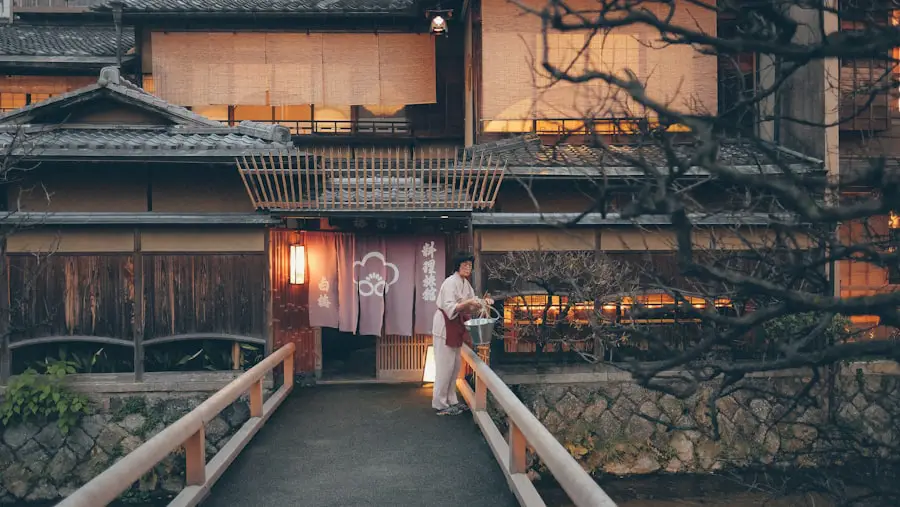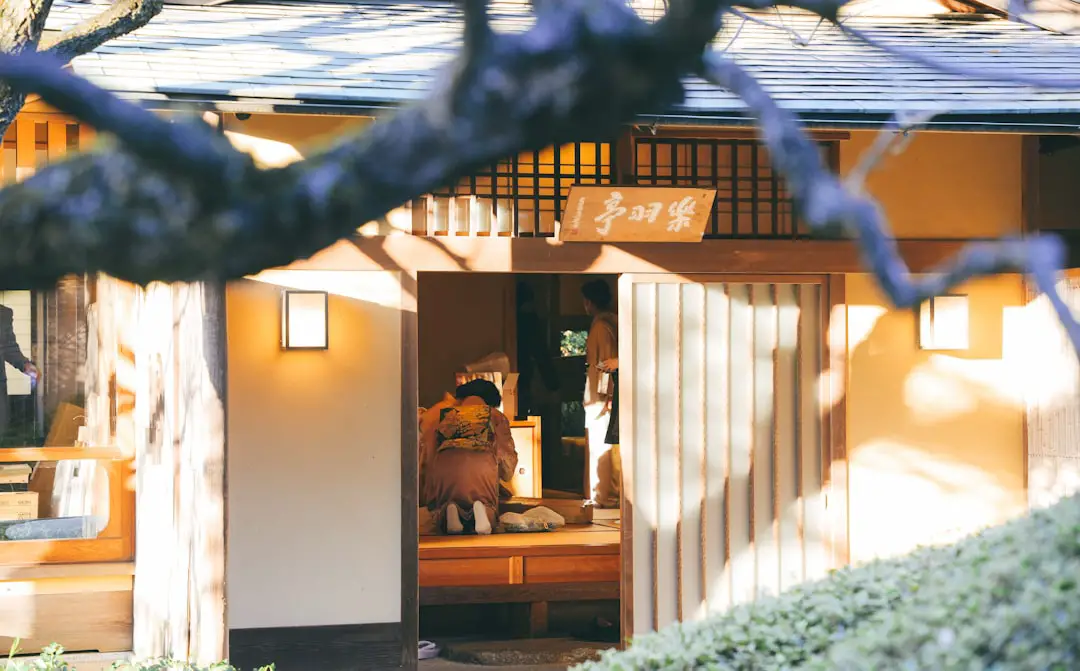Love hotels are a distinctive type of accommodation primarily found in Japan, designed to provide couples with a private space for intimate encounters. These establishments cater to a variety of clientele, including couples seeking a romantic getaway, individuals looking for a discreet rendezvous, or even those who simply need a place to rest for a few hours. Unlike traditional hotels, love hotels typically offer short-term stays, allowing guests to rent rooms by the hour or for an overnight period.
This flexibility makes them particularly appealing to those who value privacy and convenience. The atmosphere within love hotels is often designed to be both inviting and stimulating. Many feature themed rooms that range from the whimsical to the luxurious, complete with mood lighting, unique decor, and amenities that enhance the romantic experience.
While the concept of love hotels may seem foreign to many outside Japan, they play a significant role in the country’s accommodation landscape, reflecting societal attitudes towards romance and privacy. The appeal of these establishments lies not only in their services but also in the cultural context that surrounds them.
Key Takeaways
- Love hotels are short-stay hotels in Japan designed for couples to have private and intimate experiences.
- Love hotels have been around since the 1960s and have evolved to cater to various needs and preferences of their guests.
- Unique features of love hotels include themed rooms, amenities like jacuzzis and karaoke machines, and discreet check-in processes.
- Booking a love hotel can be done through various methods such as online booking websites, walk-ins, or using a dedicated app.
- Guests can expect privacy, convenience, and a range of amenities during their stay at a love hotel, with the option to extend their stay for an additional fee.
The History of Love Hotels in Japan
The origins of love hotels can be traced back to the post-World War II era in Japan, a time when societal norms regarding relationships and intimacy were undergoing significant changes. As urbanization increased and traditional family structures began to shift, the demand for private spaces where couples could meet grew. The first love hotels emerged in the 1960s, catering primarily to young couples who sought a discreet environment away from prying eyes.
These establishments quickly gained popularity, leading to a proliferation of love hotels across urban areas. By the 1980s, love hotels had become a staple of Japanese culture, evolving from simple lodgings into elaborate venues that offered a wide range of themes and amenities. The rise of consumerism during this period contributed to the diversification of love hotel offerings, with many establishments incorporating high-tech features such as karaoke machines, jacuzzis, and even virtual reality experiences.
This evolution reflected broader societal changes, as attitudes towards sexuality became more liberal and open. Today, love hotels are not only a practical solution for couples but also a unique aspect of Japan’s cultural landscape.
The Unique Features of Love Hotels

One of the most striking characteristics of love hotels is their thematic diversity. Each establishment often boasts a unique concept that sets it apart from others, ranging from romantic and luxurious to quirky and playful. For instance, some love hotels feature rooms designed like fairy tale castles or tropical paradises, complete with elaborate decor and props that enhance the fantasy experience.
Others may adopt a more minimalist approach, focusing on sleek design and modern amenities. This variety allows guests to choose an environment that aligns with their desires and preferences. In addition to thematic rooms, love hotels often provide an array of amenities that cater to couples seeking an intimate experience.
Many rooms are equipped with large beds, mood lighting, and sound systems that allow guests to create their desired ambiance. Some establishments go even further by offering features such as private hot tubs, saunas, or even pools. Additionally, many love hotels provide discreet check-in processes, often utilizing automated kiosks or hidden entrances to ensure privacy for guests.
This attention to detail creates an environment where couples can feel comfortable and relaxed.
How to Book a Love Hotel
| Step | Description |
|---|---|
| 1 | Search for love hotels in your desired location |
| 2 | Check the availability and rates for your preferred dates |
| 3 | Choose a room type and any additional amenities |
| 4 | Provide your personal information for booking |
| 5 | Confirm your booking and make any required payment |
| 6 | Receive a booking confirmation with details of your reservation |
Booking a love hotel can be a straightforward process, though it may differ from traditional hotel reservations. Many love hotels operate on a walk-in basis, allowing guests to simply arrive and choose a room based on availability. However, for those who prefer to plan ahead or ensure they have access to specific amenities or themes, online booking options are increasingly common.
Websites dedicated to love hotel reservations provide detailed information about each establishment, including room types, rates, and available features. When booking a love hotel, it is essential to consider factors such as location, price range, and desired amenities. Many websites allow users to filter their search based on these criteria, making it easier to find the perfect match for their needs.
Additionally, some love hotels offer special packages or discounts for extended stays or off-peak hours.
What to Expect During Your Stay
Upon arrival at a love hotel, guests can expect a unique experience that differs significantly from traditional accommodations. Many establishments prioritize discretion and privacy; therefore, check-in processes are often designed to minimize interaction with staff. Guests may use automated kiosks or private entrances to access their rooms without drawing attention.
This emphasis on privacy is one of the key attractions of love hotels, allowing couples to enjoy their time together without concern for judgment or intrusion. Inside the room, guests will find an array of features designed to enhance their stay. Depending on the establishment, rooms may include luxurious bedding, mood lighting options, and entertainment systems equipped with movies or music tailored for romantic settings.
The overall atmosphere is typically designed to be inviting and intimate, encouraging couples to relax and enjoy their time together.
The Cultural Significance of Love Hotels in Japan

Love hotels hold a unique place in Japanese culture, reflecting broader societal attitudes towards relationships and intimacy. In a country where public displays of affection are often frowned upon and privacy is highly valued, these establishments provide a necessary space for couples to connect away from societal scrutiny. Love hotels serve as a testament to the evolving nature of relationships in Japan, where traditional norms are increasingly challenged by modern lifestyles.
Moreover, love hotels can be seen as a response to Japan’s urban living conditions. With many young couples living with their parents or in small apartments where privacy is limited, love hotels offer an alternative that allows for personal space without the constraints of conventional accommodations. This cultural significance extends beyond mere practicality; it highlights the importance of intimacy and connection in contemporary Japanese society.
Love Hotels and Japanese Pop Culture
The influence of love hotels extends into various facets of Japanese pop culture, including film, television, and literature. These establishments often serve as settings for romantic comedies or dramas that explore themes of love and relationships. In many cases, love hotels are depicted as places where characters experience pivotal moments in their romantic journeys—whether it be a first date or a reconciliation after conflict.
Additionally, love hotels have inspired numerous artistic expressions within Japanese culture. From manga series that feature characters navigating their experiences in these unique accommodations to music that captures the essence of romance associated with love hotels, their presence is felt across multiple mediums. This cultural representation not only reflects societal attitudes towards intimacy but also contributes to the ongoing dialogue about relationships in modern Japan.
Exploring Different Love Hotels in Japan
Japan boasts an impressive array of love hotels that cater to diverse tastes and preferences. For those seeking an extravagant experience, establishments like Hotel Gracery Shinjuku offer luxurious themed rooms complete with high-end amenities such as private karaoke systems and jacuzzis. On the other hand, budget-conscious travelers might opt for more modest options like Hotel A.P., which provides clean and comfortable accommodations without breaking the bank.
For those interested in unique themes, some love hotels take creativity to new heights. The Hotel Kawaii offers rooms adorned with pastel colors and whimsical decor inspired by popular anime characters—an experience that appeals particularly to younger couples or fans of Japanese pop culture. Meanwhile, establishments like the Hotel Kappa feature rooms designed around traditional Japanese aesthetics, complete with tatami mats and futons for an authentic cultural experience.
Exploring different love hotels can be an adventure in itself; each visit offers an opportunity to discover new themes and experiences that cater to individual desires. Whether seeking romance or simply a fun getaway with friends or partners, Japan’s love hotels provide an intriguing glimpse into the country’s complex relationship with intimacy and privacy.
If you’re planning a romantic getaway to Japan and are interested in unique accommodations like love hotels, you may also want to check out this article on the best ultralight tent for backpacking here. This article provides valuable information on lightweight and compact tents that are perfect for outdoor adventures.
FAQs
What are Japanese love hotels?
Japanese love hotels are short-stay hotels that offer couples a private and discreet space for intimate activities. They are often themed and equipped with amenities such as jacuzzis, karaoke machines, and adult entertainment options.
How are Japanese love hotels different from regular hotels?
Japanese love hotels are designed for short-term stays, often just a few hours, and are focused on providing a private and romantic atmosphere for couples. They typically offer a high level of discretion and privacy, with features such as private entrances and automated check-in systems.
Are Japanese love hotels only for couples engaging in romantic activities?
While Japanese love hotels are primarily designed for couples seeking privacy for intimate activities, they are also used by travelers looking for a unique and affordable accommodation option. Some love hotels offer standard overnight stays and are open to solo travelers or groups.
How common are Japanese love hotels in Japan?
Love hotels are quite common in Japan, especially in urban areas. They serve as a popular and discreet option for couples seeking privacy and romance away from their homes.
Are Japanese love hotels legal?
Yes, Japanese love hotels are legal and regulated by the government. They must adhere to certain guidelines and regulations to ensure the safety and privacy of their guests.
